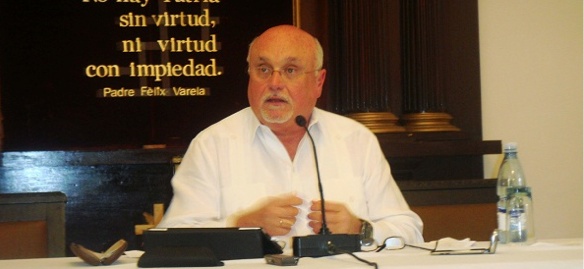
- Carlos Saladrigas in Havana (Photo: JUAN A. MADRAZO)
An endowed chair with name Felix Varela can not be other than inclusive, Cuban from top to bottom and, of course, plural.
A happy chance, then, on Friday March 30, under the image of our illustrious priest, to see the variety of people congregated in a room of the former San Carlos and San Ambrosio seminary. The reason for such a mixed gathering was Carlos Saladrigas’ conference on the subject of the Cuban diaspora and its relationship to the nation. The location served as a stage to achieve what in any other environment could not have counted on such diverse participation. Practice has shown that when civil society organizes a discussion and invites government or church officials, in general they don’t respond to this gesture of inclusion, or they simply reject it.
The soliloquy of some illegal spaces results less from the intolerance of its hosts and more from the voluntary absence of their counterparts. Also well-known is what happens when the call comes from the ruling party, because then the most critical sector of society is blocked from attending. The police cordons around the doors of cultural and academic institutions have become common practice for activities, meetings or festivals. Hence, the Church achieved what other sectors of the society cannot or do not want to: to protect with its mantle all those attending the conference.
We have to celebrate the miracle of inclusion that took place in the Felix Varela Cultural Center, whether by the true will of its organizers or because the information “leaked” from cell phone to cell phone a couple of days beforehand, I don’t know. The truth is that no one was prevented from hearing the words of the speaker and this simple fact is a true marvel in these times we live in.
In addition, his reflections carried a conciliatory tone that is completely absent from official discourse. Words we are not allowed to pronounce in the Auditorium at the University of Havana, nor in the Assembly of Popular Power, much less from the dais in the Plaza of the Revolution. First of all, we are grateful to be able to hear “another way” of narrating what we live, to see other words that break the logic of confrontation and grievance within which we normally live.
The speaker himself had been the target of every kind of attack and had experienced first hand what it is to insult and be insulted. In 1988, Saladrigas opposed the journey of numerous Cuban exiles to the Island to attend the Masses of Juan Pablo II and now found himself condemned for coming himself to those of Benedict XVI and sitting in the VIP area of the Plaza. The serpent of personal and national history that swallows its tail, digests itself and is reborn.
Carlos Saladrigas has been accused, among other niceties, of being a Trojan horse that “carries within it both Castroism to Florida and Imperialism to the Island.” I confess I have always been interested in those individuals around which so much applause and so much scorn circulate. I sincerely believe that when the extremes of intolerance attack someone, it’s because he has identified a path of moderation that does not please them. But beyond the controversy surrounding a man who comes from exile and whose present and future role is subject to question, better we should analyze his conference of that Friday afternoon.
Succinct and read from an iPad, his paper conveyed modernity, ease, new ways of looking at old problems. More than once I felt they allowed Carlos Saladrigas to say on that stage what they forbid us to say in so many spaces. However, between choosing to let your voice die in your throat, or letting another take it up to intone it in their own way… the latter is always preferable.
The successful entrepreneur who emigrated as a child uttered phrases that looked to the future: investments, transformations, velocity of the changes, projects… For a few minutes I thought we were in tomorrow, and today was just the faded memory of yesterday. But, in the words of a beautiful saying, “no one can jump beyond his own shadow,” and Carlos Saladrigas is no exception.
At one point he explained that Cuban exiles can be divided between “historics” and “hysterics” by the degree of passion and intolerance that characterize their positions. I confess that, to me, this sounded totally contrary to the spirit of his allocution. I don’t have, nor will I have, the life experience Saladrigas has accumulated in decades of living and interacting with the Cuban diaspora, but at this point my mind returned to the injuries we nonconformists receive in our own country.
The play on words–because in the end it’s just that, a play on words–of “historic and hysteric” had become notorious in the mouth of Carlos Aldana. This other “Carlos” directed the Department of Revolutionary Orientation (DOR) and was even considered a possible successor to Fidel Castro. In the time of the so-called “Letter of the Ten,” signed by several Cuban intellectuals, Aldana did as he pleased from his position as controller of the culture and official journalism. Someone asked, then, about the poet Maria Elena Cruz Varela and the severity of her incarceration simply for signing that protest. With his smile carved in power, Aldano is reported to have said, “they will say she is a historical poet but in reality she’s hysterical.”
Twenty years later the same play on words resonated in the Felix Varela Cultural Center. I had no choice but to cross myself.
Verbal violence hides in a thousand and one ways. Sometimes, trying to find the the easiest way to explain an idea, we involve ourselves in Manichaeism and verbal attacks. I think it would be very difficult, on this basis, to build the Cuba of the dream that is also Carlos Saladrigas’s. Similar oral flippancy has been used by people who have defined nonconformists as “mercenaries,” the alternative blogosphere as “cyber-trash-talkers,” those who want a change of government as “unpatriotic.”
To prolong the cycle of insults doesn’t help anyone. Something very different is the critical need and importance of having a multiplicity of opinions, and the following point is something I disagree with Saladrigas on. In relation to the Pope’s visit, he raised a variety of opinions before, during and after his stay among us. Instead of seeing these negative approaches and criticizing–as did the speaker–that “we began to criticize the visit of the Pope before it happened,” I perceive the appearance of that confrontation rather as a sign of democracy.
The Cuban dissidence and exile are infinitely more pluralistic than the ruling party. Different positions, for example, can be found among opponents and emigrants with regards to the U.S. Embargo against Cuba, the sending of family remittances from abroad, the right of Americans to travel to Cuba, the Papal visit, and methods to achieve regime change. Civil society, meanwhile, for its part, has vibrancy and diversity and this is, in no way, a sign of disunity or conflict.
One of the most obvious absences in the three days in which Joseph Ratzinger celebrated Masses on Cuban soil, was the lack of spontaneous protests from groups opposed to his figure. Beyond the respect for one religious belief or another, a healthy society is also measured by its ability to raise its voice toward a multitude of figures, creeds and traditions. Why didn’t CENESEX organize a rally in those days to confront the man who has emerged as one of the fiercest critics of condom use? Why were there no gay couples outside the airport demanding to be included in the flock of God? These absences denote only one thing: we are not free.
But beyond these two points of disagreement–a healthy and respectful disagreement–with the words of Carlos Saladrigas, I must conclude that his lecture captivated me. I was fascinated by the hiatus that was achieved in the midst of a strong wave of repression that beat on the doors of my friends and my colleagues. The smiles I hinted at that evening were the first I’d managed in a week of grim faces who watched all around my house.
In the Felix Varela Cultural Center I found people who fondly embraced me–among them the speaker himself– and others who averted their eyes from me with disdain… I loved the contrast. I hope we do not have to wait for Carlos Saladrigas to return to Havana as a guest of Lay Space to again live such a moment. And I await, also, because the histrionics, those who pretend to be what they are not, who pretend to believe, who applaud without conviction, are no longer hijacking the destiny of our country. They, in my opinion, can take us down a worse road than the stubbornness of the “historicals” or the excessive passion of the “hystericals.”
Published in Spanish in Diario de Cuba.
7 April 2012
 The balustrades are shaped like naked women and the wrought iron gate is topped with stone slabs. The garden barely has room for a couple of feet of grass from which a diminutive Pekinese barks all day. From the front door you can see the line of the bar that divides the living room from the kitchen, with bottles filled with colored liquids. A plastic tank overlooks the roof, storing enough water for days of scarcity. The iron and glass windows reveal the figures moving within the house and at night also reflect the brightness of the TV. The entire lowercase “mansion” has been painted the vermillion color that today is a sign of prosperity. With this tone preferred by those who make their way economically despite privations and bureaucratic absurdities.
The balustrades are shaped like naked women and the wrought iron gate is topped with stone slabs. The garden barely has room for a couple of feet of grass from which a diminutive Pekinese barks all day. From the front door you can see the line of the bar that divides the living room from the kitchen, with bottles filled with colored liquids. A plastic tank overlooks the roof, storing enough water for days of scarcity. The iron and glass windows reveal the figures moving within the house and at night also reflect the brightness of the TV. The entire lowercase “mansion” has been painted the vermillion color that today is a sign of prosperity. With this tone preferred by those who make their way economically despite privations and bureaucratic absurdities.


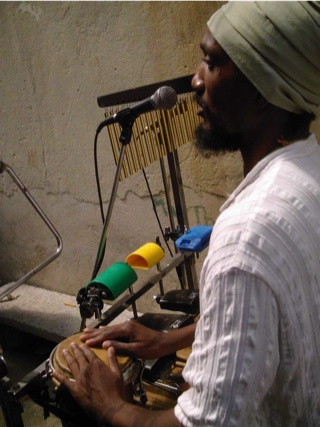
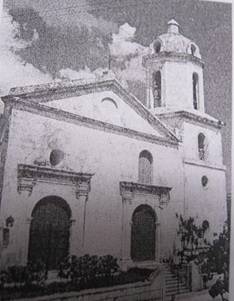
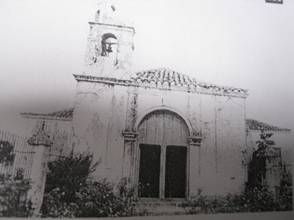
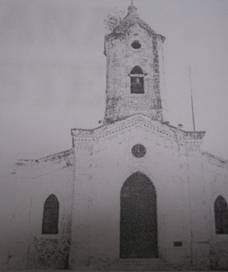
 Saturday morning. In the ration market butcher’s, a girl asked, almost begged, for the butcher to exchange the broken eggs he’d given out.
Saturday morning. In the ration market butcher’s, a girl asked, almost begged, for the butcher to exchange the broken eggs he’d given out.




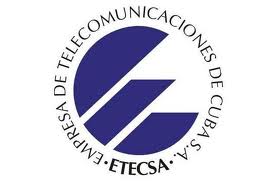

 Last Sunday ended the Catholic Social Week of the Miami Archdiocese, and luckily, I was able to participate in two of the events.
Last Sunday ended the Catholic Social Week of the Miami Archdiocese, and luckily, I was able to participate in two of the events.

